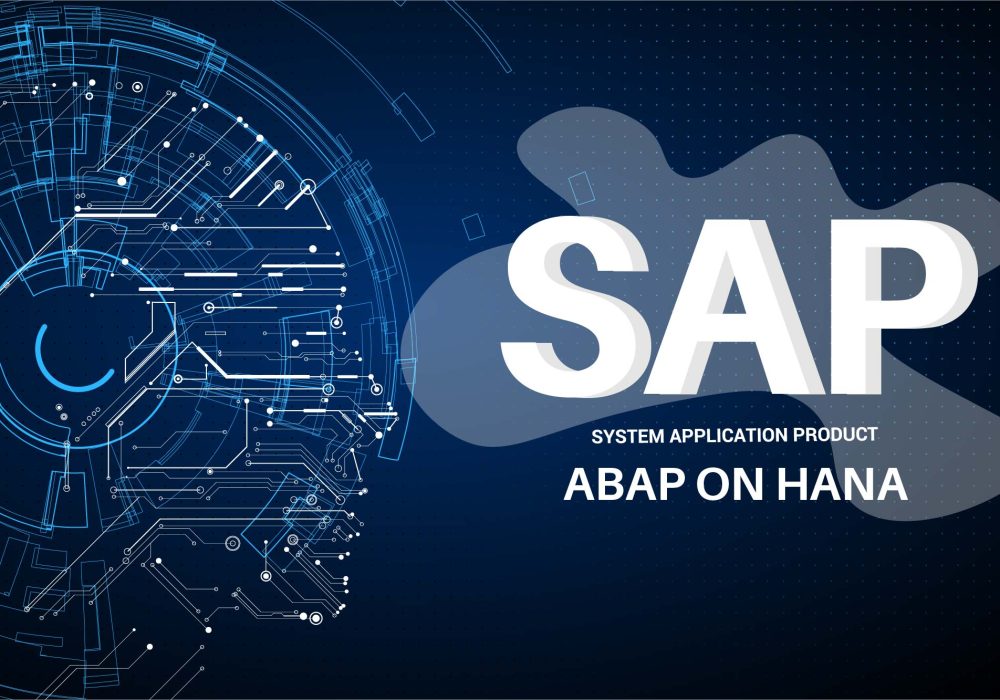SAP ABAP Course in Bangalore

SAP ABAP training in bangalore
ABAP is a programming language that is used in SAP. It stands for Advanced Business Application Program.
ABAP is a high level programming language which enables faster development, easier modification and maintenance of programs and is designed as an end-user programming language.
The SAP MM Training course in Bangalore brings in a complete curriculum that covers the topics of introduction to sap mm, designing SQL tutorials, designing CO tutorials, and designing EPICs tutorials. This ensures that students learn everything they need to know about sap mm from this course.
SAP FiCo Course syllabus:
Introduction to SAP & R/3 Architecture
- What is SAP?
- History & Features of SAP
- SAP R/2 Architecture (Limitations of R/2 Architecture)
- SAP R/3 Architecture (Types of work processes)
- SAP R/3 Application Modules
- SAP Landscape
Introduction to ABAP/4
- What is ABAP?
- Logon to SAP Environment
- Transaction Codes
- Multitasking Commands
- Comments
- Errors
- ABAP/4 Editor ( SE38 )
- Steps for Creating a Program
- Elements in R/3 Screen
- Out put Statements
- Operators in ABAP
- Data, Parameter & Constant Statements
- Data Types & Classification
- Data Objects & Classification
- Text Elements
- String Operations
- Control Statements
- Field strings
ABAP Dictionary
- ABAP Dictionary Introduction
- Data Dictionary Functions
- Data Dictionary Objects
- Data Base Tables
- Structures
- Views
- Data Elements
- Type Groups
- Domains
- Search helps
- Lock objects
- Primary Key And Foreign Key
- Table Maintenance Generator
Packages
- Creating a package
- Difference between local objects & packages
- Transferring local objects to packages
Variants
- Variants Introduction
- Creating variants in ABAP Editor & Data Dictionary
Message Classes
- Message Class Introduction
- Message types
- Calling message class in Report & Dialog programs
Selection Screens
- Selection screen Introduction
- Parameter Statement
- Select-options Statement
- Selection-screen Statement
- Screen table and its fields
- Dynamic screen modification by using Modif Id key
Open SQL Statements
- Select
- Insert
- Modify
- Update
- Delete
Internal Tables
- Internal Tables Introduction
- Declaring Internal Table
- Populating Internal Table
- Processing Internal Table
- Initializing Internal Tables
- Inner Joins And For All Entries
- Control Break Statements
Debugging Techniques
- Debugging Techniques Introduction
- Break-points (Static & Dynamic)
- Watch points
- Dynamically changing internal tables contents in Debugging Editor
- Options to step through the program in Debugging Editor
Modularization Techniques
- Modularization Techniques Introduction
- Includes
- Subroutines
- Passing Parameters to Subroutines
- Passing Tables to Subroutines
- Function Groups & Function Modules
Reports
- Reports Introduction
- Classical Reports
- Interactive Reports
- Techniques Used For Interactive Reports
- Hotspot
- Hide
- Get Cursor
Dialog / Module Pool Programming/ Transaction
- MPP Introduction
- Relationship between Screen, Flow Logic and Program
- Flow Logic Events
- Process Before Output (PBO)
- Process After Input (PAI)
- Process On Value Request (POV)
- Process On Help Request (POH)
Include Programs in MPP
- Include TOP
- Include I01
- Include O01
- Include F01
- Dynamic Screens
- Leave Screen
- Leave to Screen
- Call Screen
- Set Screen
- Processing of List from Transaction and Vice Versa
- Elements in Screen Layout
- Table Controls
- Tabstrip Controls
- Subscreens
Batch Data Communication
- BDC Introduction
- Recording
- BDC Methods
- Call Transaction Method
- Session Method
- Handling Table Controls in BDC
- Legacy System Migration Workbench
- Different Methods
- Flat file creation
- Uploading data
- File Handling
- Application Server
- Presentation Server
SAP Scripts
- SAP Scripts Introduction
- Components of SAP Scripts
- Layout Set
- Standard Text
- Out Put Program
- Modifying Standard SAP Script Layouts
- Including Logos
- SAP Script Utilities – Upload / Download
Smart Forms
- Smart Forms Introduction
- Graphics Management
- Style Maintenance
- Paragraph Formats
- Character Formats
- Writing print program and designing layouts
ALV Reports
- ALV Reports Introduction
- ALV through Function Modules
- ALV Types
- Runtime Analysis & SQL Tracing
- Cross Applications
- Introduction to Distributed Environment
- Introduction to Cross Applications
- RFC
- Introduction to RFC
- Creating RFC Destination between 2 Systems
- Creating Remote Enabled Function Modules
- Creating program using Remote Enabled Function Modules
ALE
- ALE Basics
- Overview of Outbound & Inbound Process
- Configuration Steps
- Define logical systems
- Assign client to logical system
- RFC destination
- Customer distribution model
- Creating Ports
IDocs
- What is an Idoc?
- Types of Idocs
- Basic Idocs
- Extension Idocs
- Creating Idocs
- Message Types
- Assigning Idoc type to Message type
- EDI
- EDI Basics
- Difference between ALE & EDI
- Overview of Outbound & Inbound Process
- Configuration Steps
- Port Creation
- Partner Profile Creation
BAPIs
- BAPI Overview
- Creation of BAPI
- What is workflow?
- Overview of workflow
User Exits
- User Exits Overview
- Types of User Exits
- Field Exit
- Screen Exit
- Function Exit
- Menu Exit
BADIs
- BADIs Overview
- Defining a BADI
- Implementing a BADI
OOPS Concept
- Object Oriented ABAP Overview
- Defining a Class
- Implementing a Class
- Overview of workflow
Miscellaneous Topics
- Correction & Transport request (CTS)
- Transport Organizer
- Work Bench Request
- Task Creation
- Release Objects
- SAP Memory & ABAP Memory
- Logical Database
- SD Flow
- MM Flow
Benefits SAP abap training in bangalore
This SAP abap Course is not only for those who are new to the SAP system. All levels of experience can benefit from this training. This also includes individuals who are already experienced in the use of SAP and want to become more skilled at it, as well as students in schools interested in IT-related fields and those who may wish to work with this automation in other areas such as engineering, finance or business administration.
SAP ABAP course in bangalore will teach you how enter data into the programme, make queries on that data and create reports based on it . It will also teach you how to make changes to the programmes so that they suit your needs better. The courses include courses on industrial applications and all aspects of SAP programming which cover Object Oriented programming (OOP), syntax and Structured Query Language (SQL).
Prerequisites:
The course is designed for software programmers who are seeking a career as an SAP ABAP programmer, or who have some prior programming experience in other programming languages. Students should have a thorough understanding of relational database concepts and basic computer skills.
Reasons to enroll for the training:
With SAP becoming increasingly important in the IT market, there is a large demand for ABAP programmers. Many companies in India are looking to employ them.

SAP ABAP Course Fees in Bangalore
Why Designing Courses
Why choose us for web design training in Bangalore?

Deva Dcruz
Graphic Design

Noorul Jafina
Graphic Design

Lakshmi Prashand
Graphic Design

Annaduraibalaji Balaji
UI/UX Design

Anitha Sunil
UI/UX Design

Arunkumar
UI/UX Design

Vishu Power
UI/UX Design

Mohamed irfan
UI/UX Design

BALASANJAY . P
UI/UX Design

